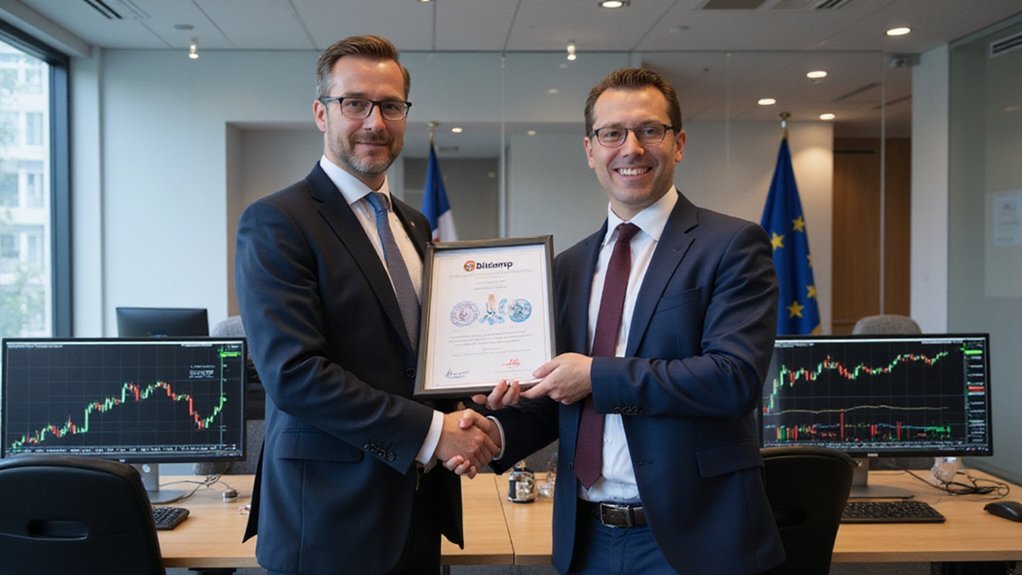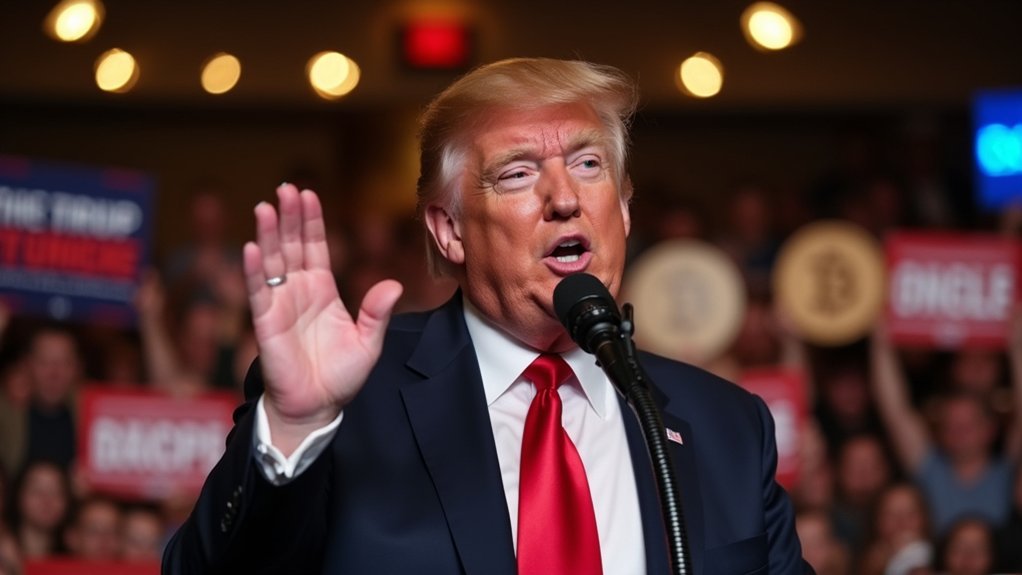As the revolving door of regulatory leadership continues its predictable—if consequential—rotation, the cryptocurrency industry finds itself maneuvering an increasingly favorable regulatory landscape in 2025.
The departure of Gary Gensler from the SEC’s helm has precipitated a seismic shift in enforcement priorities, with the commission now dismissing cases it once pursued with prosecutorial zeal.
This institutional volte-face coincides with the nomination of Paul Atkins and Mark Uyeda—appointments that signal Washington’s recalibration toward crypto accommodation rather than antagonism.
The SEC’s newly formed crypto task force has commenced the Herculean task of illuminating the previously murky waters of how federal securities laws apply to digital assets. The task force is working to rework token offerings through Regulation A and crowdfunding alternatives for companies seeking compliant paths forward.
This clarity, long the industry’s most coveted commodity (perhaps second only to regulatory forbearance), emerges as various jurisdictions worldwide have already established robust frameworks.
The EU’s Markets in Cryptoasset regulation now serves as a potential blueprint, while regulatory sandboxes throughout the APAC region continue to incubate innovation under measured oversight.
Meanwhile, Congress faces mounting pressure to codify crypto guidelines, though legislative machinery grinds forward with characteristic torpor.
Several draft bills circulate through committee rooms, attempting to delineate the jurisdictional boundaries between the SEC and CFTC—a demarcation that remains contentious despite years of inter-agency friction. The anticipated FIT21-like legislation aims to finally bring regulatory clarity for market participants across the digital asset space.
Pro-crypto electoral victories have tilted the political calculus, though translating ballot-box momentum into statutory reality remains a formidable challenge.
Market participants have responded to this regulatory détente with predictable enthusiasm.
Investment capital, once skittish about regulatory overreach, now flows more freely into blockchain ventures. Industry pioneers like Howard Winklevoss have championed self-regulation frameworks through initiatives such as the Virtual Commodity Association.
The industry’s newfound optimism (perhaps premature, though not wholly unwarranted) has catalyzed significant talent migration, with regulatory experts from traditional finance increasingly colonizing crypto’s executive suites.
These personnel movements, while individually unremarkable, collectively reconstitute the industry’s regulatory interface—establishing connections that may prove invaluable as the sector navigates its still-evolving relationship with the state’s supervisory apparatus.









